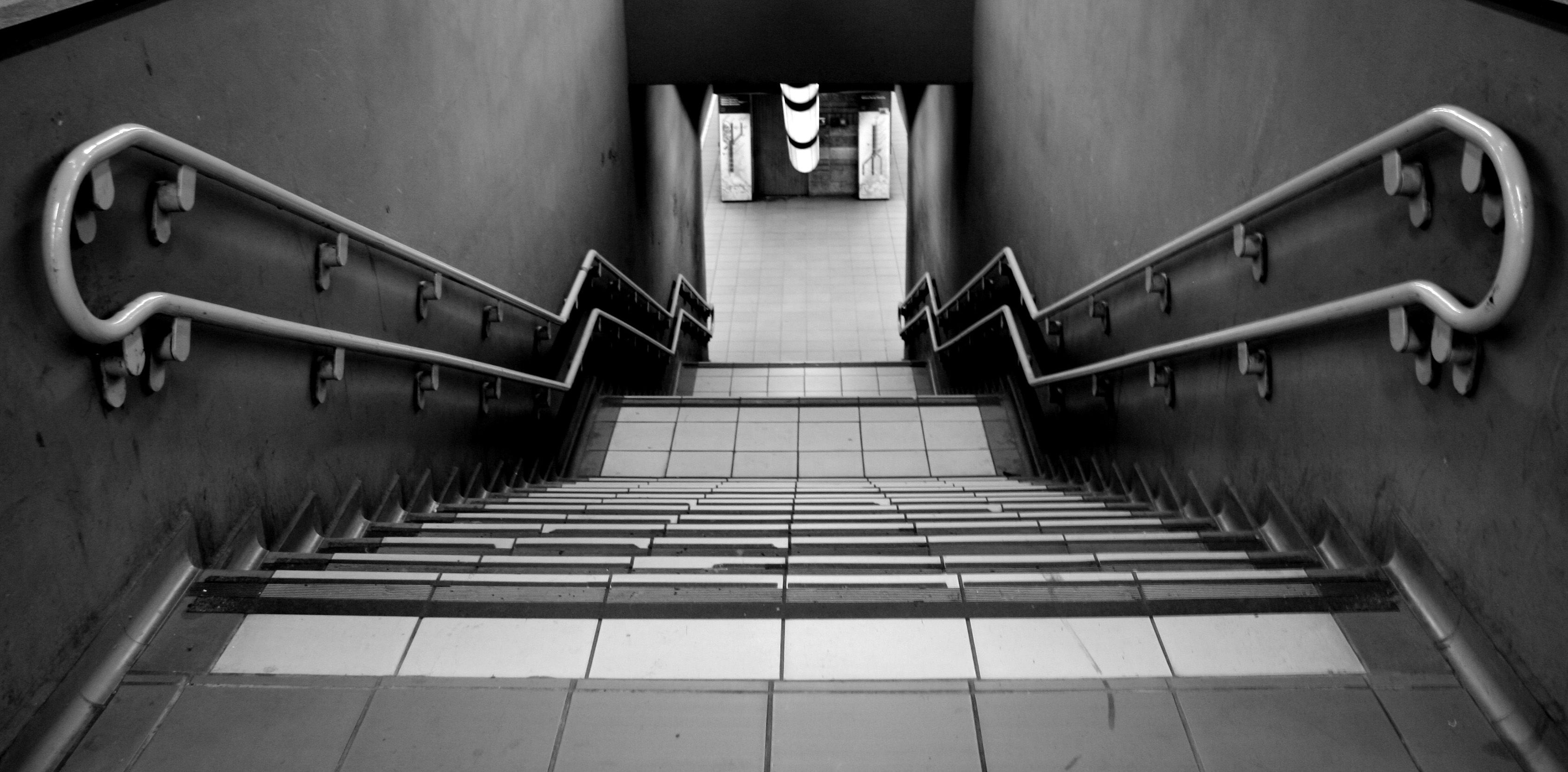I think part of the reason it resonated with me is that so many instances of misjudging parents involves children with "invisible" disabilities. And although I'm not a parent myself, that's something that strikes me right at home, because "invisible" disabilities affect people of all ages, including members of my family. So I want to add to the story by telling one of my own.
Image: A straight flight of stairs, at Porta Garibaldi sotterranea station, Milan.
By Dela Andy Kumahor. CC-BY 2.0
At one of the universities where I've taught, the English department and the ROTC are in the same building. One morning as I stepped into the elevator on my way to my office on the 3rd floor, I was joined by a member of the faculty whose office was on the 2nd floor, as well as three cadets who were on their way to the 4th floor. As the professor stepped out on the 2nd floor and the doors were almost closed behind her, one of the cadets remarked that if she weren't too lazy to climb a single flight of stairs, maybe she could lose a few pounds and not need to take the elevator; the others laughed and nodded.
I glared, hoping that my disapproval of their hypocritical judgment was evident in my face, but said nothing. It was not my place to "out" my colleague. But I knew that she has MS, and I knew that meant taking the stairs was not an option for her. Even a short flight of stairs is a double hazard for a person whose motor skills have been affected by MS. She could easily slip and fall, and even if she didn't, taking that single flight of stairs would drastically deplete her already limited store of energy for the day.
I knew all this because my mom has MS, and not long before, she had lost her balance and fallen while simply hanging laundry outside on level ground, causing a broken hip that had to be surgically replaced. But I said nothing, because my colleague's disability was none of these strangers' business. Instead, I went to my office, closed the door, and angrily punched my chair as I fought back tears.
This dedicated teacher, and my mother, defied the MS odds because they were still walking on their own feet, without a cane or walker. They work hard to keep it that way, and part of that work involves avoiding even a few stairs whenever possible. But I realized that to these young men at the very peak of their physical condition, my colleague and my mother just looked like podgy old women who had let themselves go.
My mom still takes walks nearly every day. You can barely notice her unsteadiness—unless you know what to look for. I can spot a person with an MS walk; I've seen it all my life. But to the rest of the world, it's invisible. I've heard people whisper unkind things behind my mom's back for using the handicapped stall at a public toilet; they couldn't see that she needs the hand rail to get up and down safely. I've seen people glare at her for using one of those scooters at Wal-Mart, but then get up to reach something from a top shelf; they had no way of knowing that doing the grocery shopping, even with a little motorized help, would leave her exhausted for the rest of the day. But that's the whole point: they had no way of knowing. And it was none of their business, anyway.
So the next time you catch yourself judging a parent whose child is screaming in the middle of the cereal aisle, or a fat person stepping onto an elevator instead of taking the stairs, ask yourself: what don't you know about them? and why should you care? Hint: you should care. Of course you should. But caring is the opposite of judging.


.jpg)

This is really an eye-opener and great reminder of why we should be overwhelmingly slow to judge others but quick to care and love them for who they are. None of us are as perfect as we mostly think we are. Even lads like me have physical challenges that rock our lives in ways we would wish they never did. Some of them are obvious while others are illusive but we know that they are there. We just mostly choose to ignore them because of the little control we have over them. Thanks for sharing!
ReplyDelete